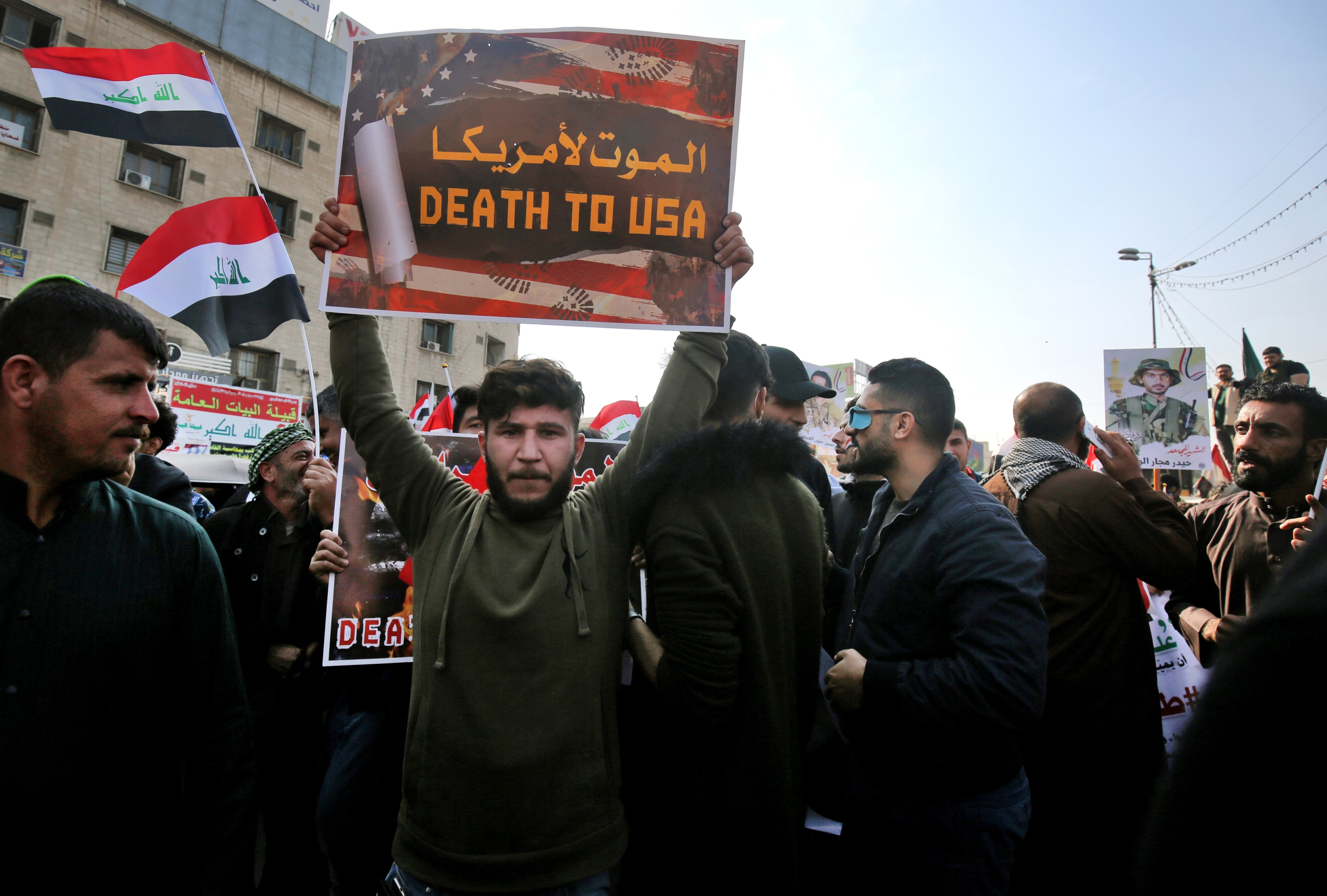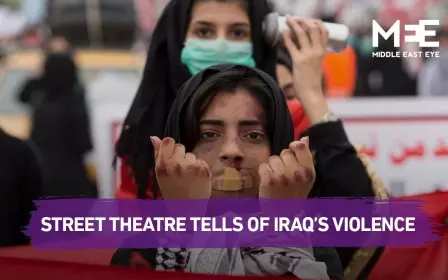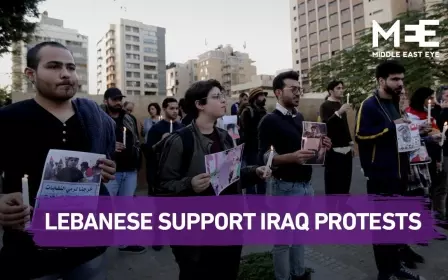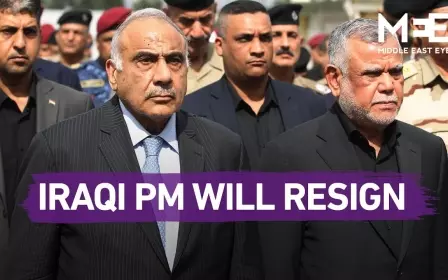Several people stabbed in Baghdad as pro-militia groups briefly join protesters

Fifteen people have been stabbed in Baghdad, as supporters of Iraq's Hashd al-Shaabi paramilitary flooded in and then out of the city's Tahrir Square, according to protesters.
On Thursday, several thousand people waving sticks, Iraqi flags and the Hashd logo marched to the square, which has been the epicentre of anti-government protests in the capital.
They chanted against the United States, Saudi Arabia and Saddam Hussein, who was toppled in the US-led invasion of 2003.
Briefly, the Hashd supporters even chanted against Iran. Some of the most powerful Hashd units are supported financially and ideologically by Tehran, which has been a target of protester anger over its involvement in Iraq.
Some carried portraits of Hashd fighters killed while battling the Islamic State group and of the country's top Shia cleric, Grand Ayatollah Ali Sistani.
New MEE newsletter: Jerusalem Dispatch
Sign up to get the latest insights and analysis on Israel-Palestine, alongside Turkey Unpacked and other MEE newsletters
The Hashd first backed Iraq's government against the protests, but after Sistani's intervention last week, it dropped its support.
The new crowds carried signs opposing "vandals", referring to those who have been attacking public or private property during the protests. However, demonstrators sensed something more threatening was afoot.
"They've ruined it," one demonstrator told the AFP news agency, while another muttered: "It's going to get messy."
According to three demonstrators and a witness speaking to the Associated Press (AP), there were 15 knife attacks as the pro-militia groups withdrew from Tahrir Square.
Though there were no fatalities, the attacks raised concerns, with one protester suggesting to the AP that the attacks “might have been perpetrated by the parties or someone who wants to ignite problems with the parties”.
Deaths and threats
"They came here to clear us out and end the protests," said Tamim, a 30-year-old demonstrator wearing a protective vest.
Toby Dodge, director of the Middle East Centre at the London School of Economics, told AFP it appeared to be "a new tactic to 'crowd out' or close the space down available to the demonstrators".
Activists in Baghdad and elsewhere have already been subject to threats, kidnappings and even killings in what they say are attempts to keep them from demonstrations.
In one particularly gruesome case, the bruised body of 19-year-old Zahra Ali was left outside her family home late Monday, her father told AFP. She had been missing since that morning.
"We had been distributing food and drink to protesters in Tahrir and we had never been threatened, but some people took pictures of us," Ali Salman said.
"The court established she had suffered electrical shocks."
'Punish' perpetrators
Mass rallies have rocked Iraq's capital and south since early October, first denouncing government graft and a lack of jobs before moving to broader demands for deep-rooted regime change.
Nearly 430 people have been killed and 20,000 wounded since demonstrations erupted, according to an AFP toll compiled from medics, police and a national commission.
The victims' families have been demanding justice for their loved ones and many of them hit the streets of Iraq's southern Diwaniyah on Thursday.
They joined thousands of other protesters, mostly teachers and students taking part in a general strike, AFP's correspondent said.
"The authorities are putting off the issue of who killed our sons and brothers in the protests," said Assaad Malek, whose brother died in protest-related violence.
"They should take a tough stance and severely punish the officers and SWAT forces who killed my brother," he added.
A verdict for security force members accused of violence against protesters in Diwaniyah was scheduled for Thursday, but the session was indefinitely postponed.
On Sunday, an Iraqi court sentenced a police officer to death after convicting him of killing demonstrators, the first such sentence in the two months of deadly unrest.
In the southern hotspot of Nasiriyah, hundreds gathered at the main protest camp in the city centre, joined by delegations from the province's powerful tribes.
Tribal dignitaries intervened last week to tamp down tensions between protesters and security forces after more than two dozen people were killed in a bloody crackdown.
A spree of violence left several dozen dead in the south last week, ultimately paving the way for the embattled prime minister, Adel Abdul Mahdi, to resign at the weekend.
President Barham Salih has been formally tasked with naming a successor, but such decisions typically come only after drawn-out horsetrading among factions.
Iran's point man on Iraq, Islamic Revolutionary Guard Corps Commander Qassem Soleimani, has been in Baghdad to rally political forces around a new premier.
Parliament, which is set to meet on Thursday afternoon, has meanwhile focused on a new electoral reform law.
Middle East Eye delivers independent and unrivalled coverage and analysis of the Middle East, North Africa and beyond. To learn more about republishing this content and the associated fees, please fill out this form. More about MEE can be found here.





